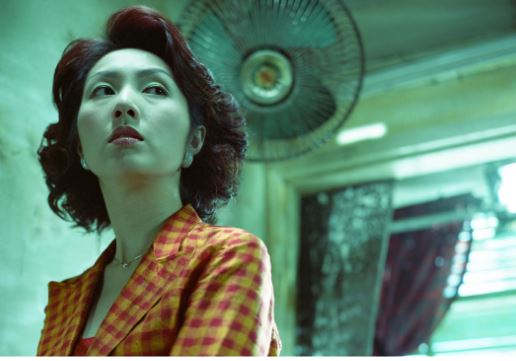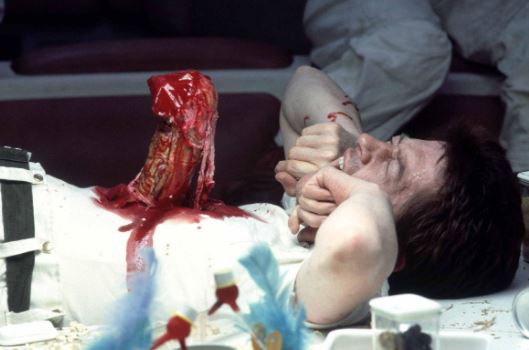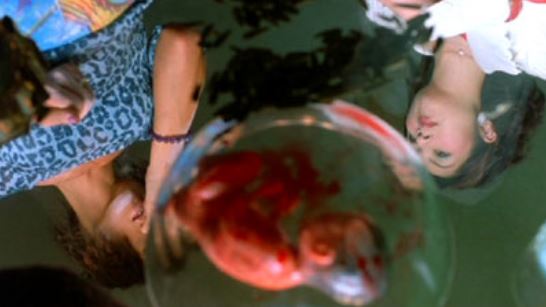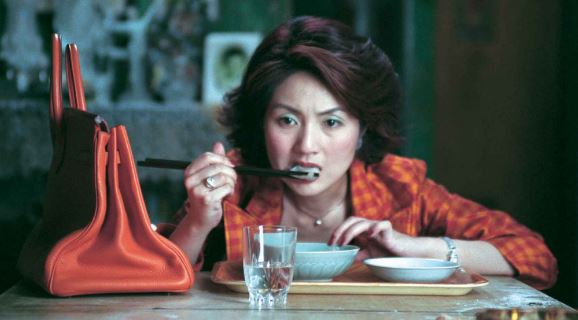The Many Faces of the Archaic Mother: Dissecting the Monstrous Feminine

“The unacceptable, monstrous aspect of woman is represented in two ways: Mother as an omnipresent archaic force linked to death and Mother as the cannibalistic creature” — Barbara Creed
Within nearly every subcategory of the horror genre, women fulfill a unique role as both villain and victim. Barbara Creed, a feminist film theorist with her work focusing on the horror genre, has identified several character archetypes. Women are thus deemed virtuous or monstrous by the viewer through the lens of patriarchal ideology.
One such archetype Creed identifies in her 1993 book, “The Monstrous-Feminine,” is the archaic mother. Borrowing a term coined by psychoanalyst Sigmund Freud, Creed explains how matriarchal figures in horror are depicted as monstrous because of their primal maternal instincts and reproductive capabilities. In fiction, Creed argues that these primal instincts can be reimagined as a form of cannibalism. The archaic mother must reincorporate her progeny back into its source.

In the words of Freud, the archaic mother is one’s “first nourisher and first seducer.” This archetype is especially prevalent within the realm of science fiction horror films. Alien races threaten humanity with parasitism and repopulation. “Invasion of the Body Snatchers” (1956) and “Alien” (1979) exemplify such anxieties by portraying scenes of natural birth and the growth of another being within the body in a grotesque manner.
The archaic mother is pervasive, all-knowing, and a threat to anyone who challenges her domain. One expects her to be trustworthy given her outward appearance. Maternal instinct is assumed to be inherent to womanhood. Rather, something more sinister lurks within. In simple terms, she has brought life into the world and is more than willing to take it out. The archaic mother hungers for total control. The mother’s obsession with her young deviates from the traditional maternal instincts, prioritizing authoritarianism over unconditional devotion. After all, who else but mother knows best?
“Dumplings” (2004), a Hong Kong horror film, is one of the most morbid examples of the archaic mother in 21st century cinema. Mrs. Li (Miriam Yeung) has found herself in a loveless marriage with her adulterous husband. She feels as though she is forced to compete with a younger, thinner woman with long silky hair. Longing for a way to regain her youthful beauty, she discovers Mei (Bai Ling), a local chef, who claims to make dumplings with regenerative powers. The secret ingredient, however, is the meat of unborn fetuses imported from Mei’s former employer.
Mrs. Li is disturbed by the truth behind Mei’s dumplings, but her judgment is clouded by vanity. She begs for more potent ingredients, eventually going so far as to cook her own dumplings to maintain the results. Appearances are everything. The film deals with the harsh realities of sexual assault, black market abortions and stringent Chinese beauty standards. A woman’s value in society is intertwined with her perceived beauty, influencing her ability to find work and develop personal and professional relationships. In ancient China, women and girls were often forced to cause bodily harm to themselves in pursuit of beauty and the elimination of bodily autonomy by binding their feet and waists. Mrs. Li shows a willingness to sacrifice herself as well as less valuable “others” so long as she is perceived as beautiful.

“Dumplings” has been interpreted as a critique of China’s one-child policy, an attempt at curbing rapid population growth at the expense of people’s reproductive rights and bodily autonomy. Though the policy has since been expanded to three children, it continues to receive heavy scrutiny for mandating contraception, sterilization and sometimes even abortions for unwilling patients.
The film’s unique depiction of the archaic mother presents a controversial narrative that complicates both sides of global abortion debates. Mrs. Li, who cannot become a mother herself, has found a way to exert power over younger, more vulnerable women. Their offspring become her prey, the key to vitality. When Mrs. Li’s husband impregnates his significantly younger masseuse, the pregnancy becomes an opportunity rather than an obstacle. Mrs. Li pays for the abortion and collects the fetus. She has become the arbiter of the family’s physical and social image.
The characters are dressed in vibrant outfits against candy-coated backgrounds as their grim fates play out on screen. These colorful backdrops serve as contrast to such dark subject matter. It is a distraction from the brutality, drawing attention to the women’s appearances rather than their actions. They are emboldened by consumption, capitalizing on the misfortune of powerless impregnated girls. The extent to which Mrs. Li obsesses over her body image is most likely influenced by the degree to which Chinese culture values aesthetics over comfort. As Mrs. Li reclaims her beauty, her clothing takes on neon hues. She fades into neutral tones by the film’s climax, mirroring her manic descent.
Mrs. Li is driven by selfish motivations, yet it is difficult to simply condemn her desperation as an intentional act of evil. Any woman under patriarchal influence has the potential to become Mrs. Li. Her manipulation as a means of achieving beauty is driven by the male gaze rather than pure personal ambition. The visage of a younger woman is a thin veil concealing Mrs. Li’s depravity. It shields the monster within, conflating beauty with morality. The archaic mother is not born into moral depravity. She is corrupted by an insatiable desire for control.

“Dumplings” is available to stream on Tubi and Vudu or available to rent starting from $3.99 on Apple TV or Amazon Prime Video.
Regions: International
